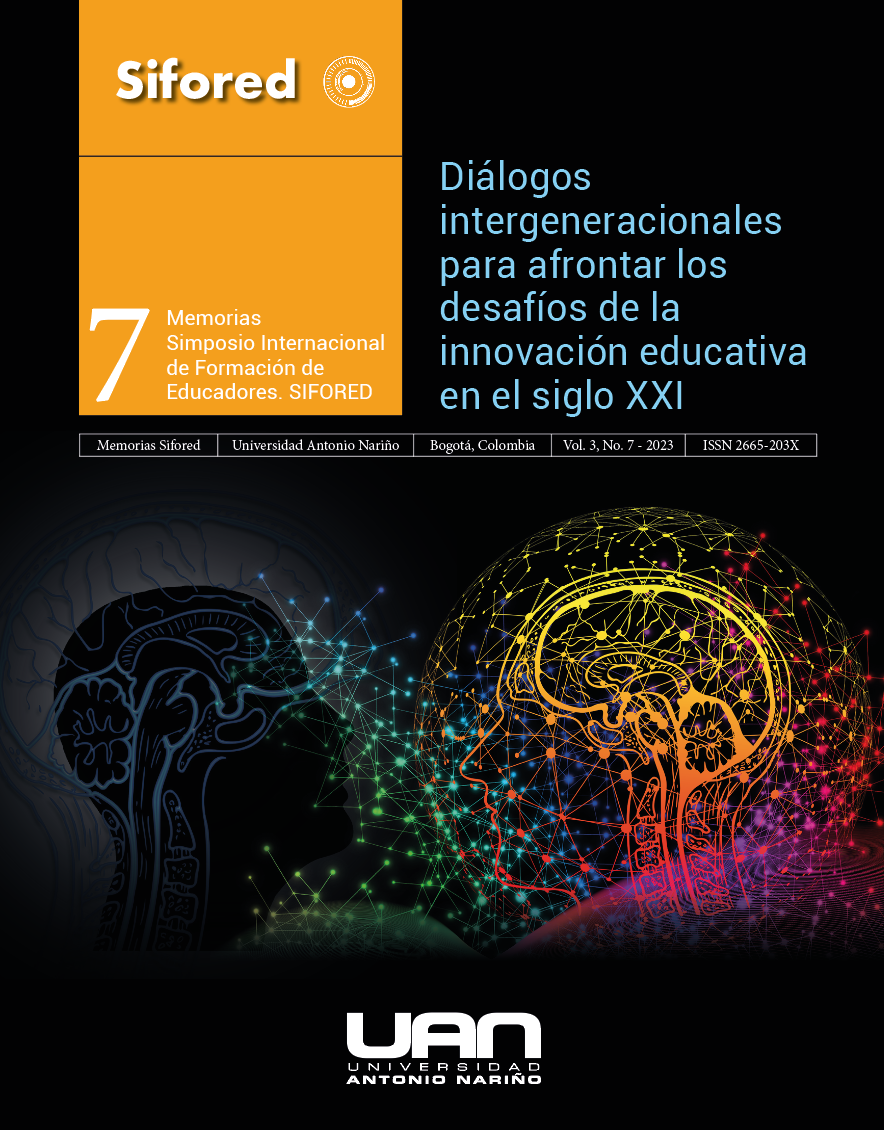La educación artística en procesos de formación integral y construcción de escenarios de paz
Keywords:
Educational innovation, arts education, basic education, peace educationAbstract
This paper reports a theoretical review in which arts education is addressed as a device for strengthening knowledge, skills, competencies and basic skills in primary education so that students are formed in a comprehensive manner and with a thinking in which empathy and languages of peace are the protagonists for the construction of a supportive, inclusive and assertive world in the peaceful resolution of conflicts. In this regard, the authors addressed place art education as a motivating axis for the consolidation of actions that allow educators to integrate the knowledge established in the curricula, with sensory awareness and the acquisition of life skills, and in turn, they highlight primary basic education as the ideal time to motivate and contribute to the strengthening of these skills from environments of harmony, empathy and individual and collective maturity with a view to the construction and experience of peace scenarios. Thus, the invitation is generated so that from the schools of basic education the diverse artistic possibilities are adopted for the growth of the human being in all its dimensions, recognizing art as a scenario for peace and positive social transformation.
Downloads
References
Acaso, M.y Megías, C. (2017). Art Thinking: cómo el arte puede transformar la educación. Barcelona: Paidós.
Diez del Corral. (2005) Una nueva mirada a la educación artística desde el paradigma del desarrollo humano. Universidad Complutense, Madrid.
Eisner, E. (1998). Educar la visión artística. Barcelona: Paidós.
Ministerio de Educación Nacional, MEN. (8 de febrero de 1994). Ley General de Educación.
[Ley 115 de 1994]. Recuperado de https://www.mineducacion.gov.co/1621/articles-85906_archivo_pdf.pdf
Misión Internacional de Sabios (2019). Arte, cultura y conocimiento: Propuestas del foco de industrias creativas y culturales. Bogotá: Editorial Pontificia Universidad Javeriana.
Morin, Edgar. (1999). Los siete saberes necesarios para la educación del futuro. Organización de las Naciones Unidas para la Educación, la Ciencia y la Cultura. Traducción: AGUILAR, Vázquez Irasema y THIERRY G., David René.
ONU - Organización de las Naciones Unidas (2018). La Agenda 2030 y los Objetivos de Desarrollo Sostenible: una oportunidad para América Latina y el Caribe.
https://repositorio.cepal.org/bitstream/handle/11362/40155/24/S1801141_es.pdf
UNESCO, 2022. Propuestas para la educación artística orientaciones de política pública. Organización de las Naciones Unidas para la Educación, la Ciencia y la Cultura, 7. Oficina Regional de Educación para América Latina y el Caribe (OREALC/UNESCO Santiago), Enrique Delpiano 2058, 7511019 Santiago, Chile.
Downloads
Published
-
Abstract383
-
PDF (Español)116
How to Cite
Issue
Section
License

This work is licensed under a Creative Commons Attribution-NonCommercial-ShareAlike 4.0 International License.


 Portal de Ciencia Abierta
Portal de Ciencia Abierta